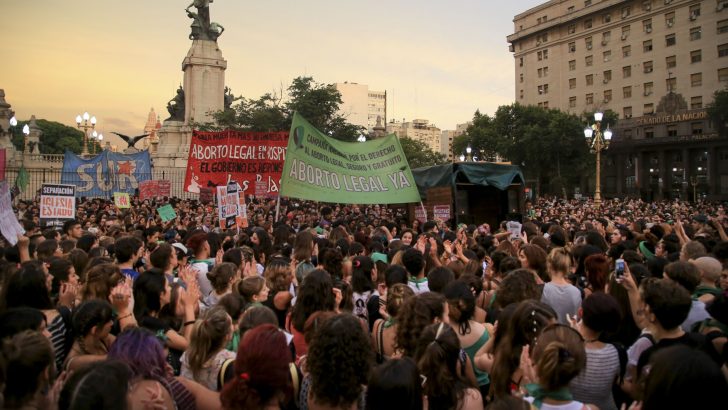Argentina’s bishops expressed disappointment with the approval of an initiative that moves the South American country closer to legalising abortion.
This comes as the country’s bishops have pledged to review their social ministries to better attend to youth and women.
The country’s lower house of congress voted 129-123 to approve the initiative, which decriminalises abortion during the first 14 weeks of pregnancy. The initiative now goes to the country’s senate.
“This decision hurts us as Argentines,” the bishops’ conference said in a statement. “But the pain for the abandonment and the exclusion of innocents must be transformed into strength and hope, to continue fighting for the dignity of all human life.”
The close June 14 vote on the abortion issue reflected division in Argentine society, according to observers in the majority Catholic county.
The law won support in big cities, but was opposed in the provinces. Supporters and opponents crowded streets in the capital – with supporters waving green handkerchiefs – as lawmakers debated through the night. The outcome remained uncertain until the final hours.
A government survey taken in April showed Argentines split on this issue, with 46% opposing legalisation and 45% supporting it.
President Mauricio Macri allowed the legislation to proceed, while expressing his own personal opposition to abortion.
President Macri had called for a “mature” debate on the issue and said he would not veto any abortion legislation.
One observer said the president’s willingness to allow the issue to be debated was being widely interpreted as a “smokescreen”, as Macri has pushed difficult economic reforms, and the Argentine economy has faltered in 2018 with the currency plunging precipitously.
“While people are focused on the (abortion) debate, the economic policymakers can work without being disturbed, because all the public attention is focused on this debate and then the World Cup,” said Fernando Farias, an Argentine journalist. “This is a good time to pass unpopular economic laws.”
“As pastors, this recent time has caused us to recognize weaknesses in our pastoral work: integral sexual education in our educational institutes, the full recognition of women and men, and the accompaniment of women who are exposed to abortion or who have gone through this trauma. All of these are calls of a reality, which demands a response as a church,” the bishops’ statement said.
CNS


